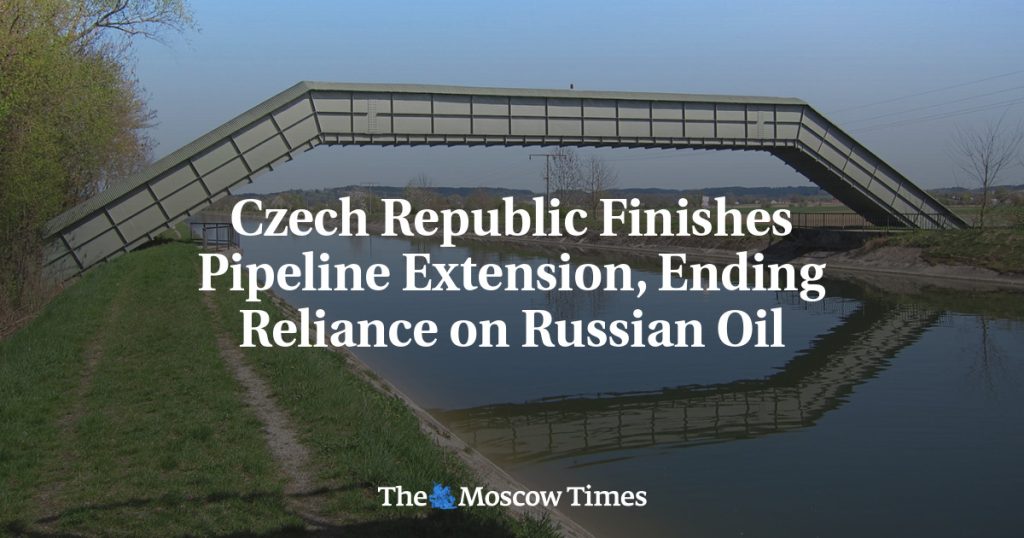Summarize this content to 2000 words in 6 paragraphs
The Czech Republic no longer needs to import Russian oil following the completion of an expansion to the Transalpine Pipeline (TAL) from Italy, Prime Minister Petr Fiala announced Tuesday.
“The construction of this expansion has now been completed,” Fiala told reporters. “Russia can no longer blackmail us, and we have a guarantee that we can completely supply ourselves with oil from the West.”
The TAL pipeline transports oil from the Italian port of Trieste to southern Germany, where it connects to the IKL pipeline supplying the Czech Republic. The expansion doubles the country’s oil import capacity via TAL to eight million tons per year.
Finance Minister Zbynek Stanjura said the expansion, costing 1.5 billion Czech koruna ($61 million), was financed by the state-run oil transit company Mero.
Since the 1960s, the country has relied on the Russian Druzhba pipeline for oil, a remnant of its time as part of Soviet-aligned Czechoslovakia. After Russia invaded Ukraine in February 2022, the EU banned most Russian oil imports, though the Druzhba pipeline was initially exempted due to limited alternatives.
Fiala previously pledged to remove the exemption as soon as alternative oil supplies became available.
Mero CEO Jaroslav Pantucek confirmed that, while minor work remains on the expanded pipeline, the country can now fully supply local refineries via TAL. “We are fully capable of supplying oil to the Czech Republic if supplies via Druzhba are halted,” he said.
In 2023, Russian oil still accounted for 58% of Czech oil imports, according to the industry and trade ministry.
The TAL pipeline, operational since 1967, is owned by a consortium of eight oil firms, including Mero and global energy giants Shell, Eni and ExxonMobil.


